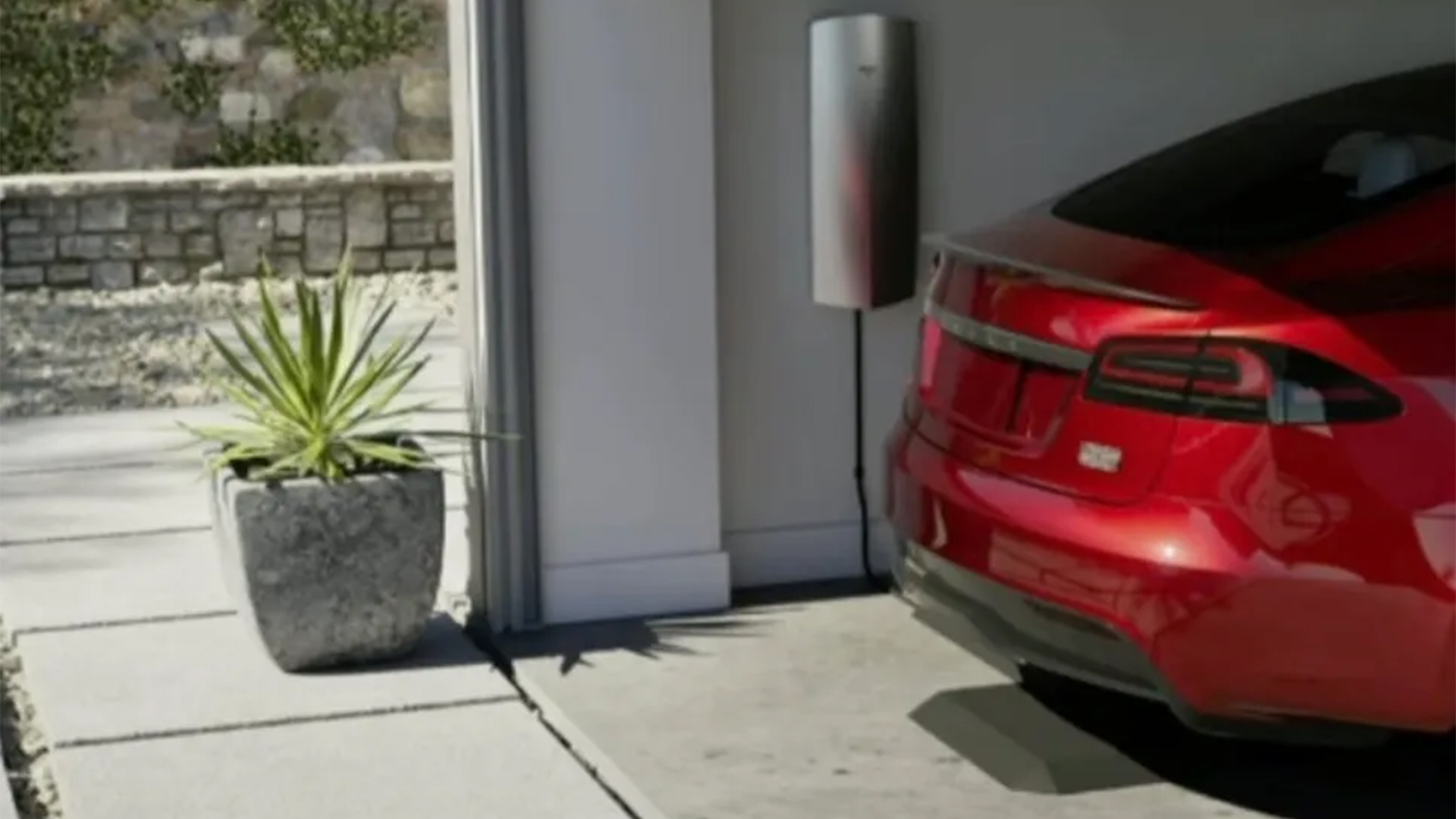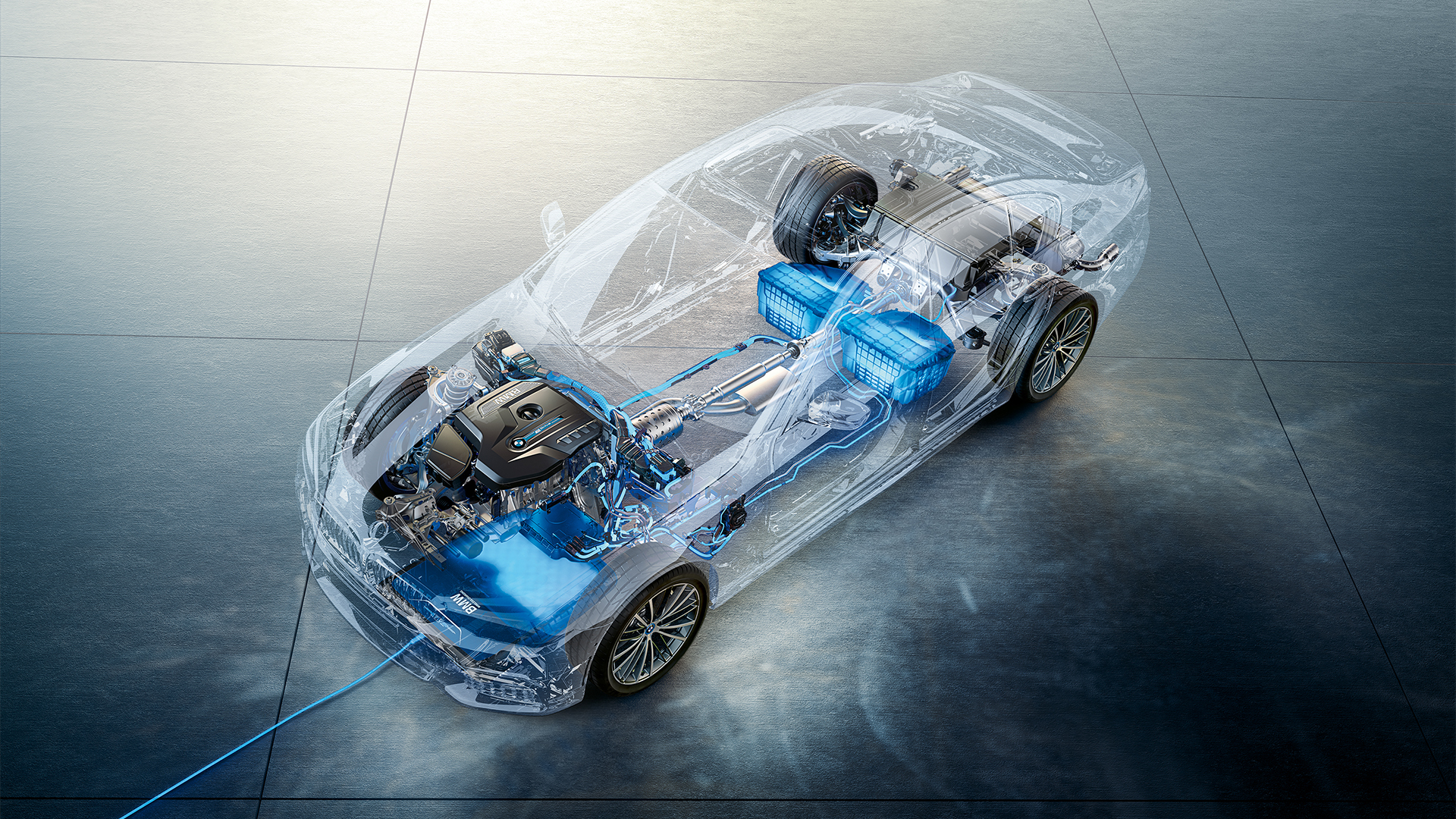
In true Tesla form, a company spokesperson appears to have inadvertently confirmed that it is working on a technology that will allow future Tesla models to be charged wirelessly, using inductive technology.
Rather than make the statement publicly though a press release (tricky when you nuked much of your press department back in 2020), the information was subtly dropped into an interview segment with Jay Leno (via Electrek), where Tesla chief designer Franz von Holzhausen told the former Tonight Show host: "We are working on inductive charging. You don’t even need to plug anything in at that point. You just drive over the pad in your garage and you start charging."
That juicy morsel appears to back up previous mentions of said tech. Wireless charging speculation arose when Tesla teased a charging pad in a presentation that took place during its Investor Day in March of this year. An image appeared on screen showing a Tesla parked over a mat in a garage, as well as an image of the company's upcoming Diner project in California.
Joining the dots would suggest that Tesla is perhaps thinking of installing inductive charging at its upcoming entertainment destination, which makes sense considering that cars attending the Drive-in Supercharger station would be parked for a number of hours and this tech would negate the need for lots of potentially hazardous and unsightly cables.
Is wireless the way to go?

Like so much of Tesla’s 'game-changing' technology, this isn't the first time we've seen it applied to the world of automotive. BMW announced its Wireless Charging Pilot Program way back in 2018, while Genesis trialled a similar set-up in South Korea earlier this year.
That said, there have been a number of issues that have blighted the widespread uptake of wireless inductive technology so far. Unlike your smartphone, which is easy to get into position to wirelessly charge, EVs have to be parked with the utmost precision, with BMW eventually relying on highly automated parking technology to get the vehicle perfectly placed over the GroundPad during its trials.
Secondly, vehicles must be equipped with a secondary component to allow for wireless charging to take place, which adds additional weight that in turn drastically effects the proposed range of an electric vehicle. Every additional gram has the potential to reduce the mileage achieved on a single charge.
Finally, the charging speeds are currently woefully slow, with BMW’s innovation only managing 3.2kW, while the Genesis trial managed to push that figure to a mere 11kW. That’s fine for lengthy overnight charging in a garage, but not suitable for the public network.
Even if a Tesla is stopped for a couple of hours to enjoy a movie, 11kW will barely touch the vehicle's enormous battery packs in that time.
With that in mind, is it really so difficult to grab a physical cable and plug it in? It seems Tesla thinks so, and it will likely charge a small fortune to offer the tech as an optional extra when it finally goes on sale.
Alternatively, this could be a sign that Tesla is already predicting the future, where urban infrastructure will have wireless charging technology embedded into it and vehicles can top up while waiting at traffic lights or when stuck in traffic.
We reported earlier this year that researchers in Japanese the Chiba Prefecture just outside Tokyo are already well ahead of the game on this front.







